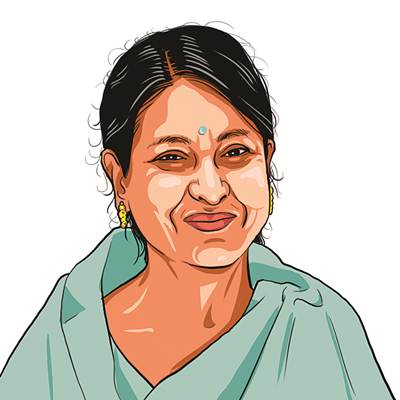Opinion From Beed to Pune – two crimes, one message
Criminals count on a climate of impunity. Because the criminal justice system is crumbling.
 NCP Food and Civil Supplies Minister Dhananjay Munde. (Source: File)
NCP Food and Civil Supplies Minister Dhananjay Munde. (Source: File) A powerful minister of Maharashtra has had to resign because of the allegation that his supporters killed Santosh Deshmukh, sarpanch of Massajog village, in Beed district. It is alleged that Deshmukh lost his life because he did not allow a politically strong gang of criminals to extort money from a windmill energy company. Investigations carried out by the state CID and the chargesheet show it to be a case of merciless torture of someone who had the courage to raise his voice against the organised crime of extortion.
The state government is already facing flak over the rape of a woman in a bus that was parked in Swargate, the busiest bus depot in Pune.
Such crimes show that respect for law and fear of conviction in courts has virtually disappeared from the minds of criminals, and that the area dominance of the police has dipped sharply. It is rare to see uniformed police personnel patrolling a street. This is because there are hardly any police men and women in police stations or in the chowkis. We have only around 160 police officers per lakh of population as against the internationally recommended ratio of 222 per lakh. Over and above this, the police in most states, including Maharashtra, have about 15-20 per cent vacancies.
One may laugh at the half pant-clad constable and his stick, made famous by RK Laxman’s cartoons, but he had a power of deterrence when it came to roadside criminals as well as habitual thieves. Jeep patrolling by police is no substitute for the “lathi wielding” hawaldar who could skilfully negotiate the narrow labyrinthine lanes of cities. Street dominance and effective beat patrolling prevent crimes and we should not underestimate their usefulness. Instead, we need to build public pressure to restore the beat system and strengthen it with the latest technology.
The manpower crunch faced by police stations is further aggravated by the enormous burden of VIP movement, their security and protection. In our vehicle-obsessed society, traffic constables too are generally drawn from police stations. While megapolises have separate traffic branches, they have to be regularly and routinely aided by local police stations. All this results in lax monitoring of habitual criminals or potential ones. The quality of investigation suffers and documentation required by the courts is often found wanting.
While the accused in the Swargate bus depot case of Pune reportedly has a criminal record, I am sure the gang involved in the Beed murder too are not first-timers either. The cruellest way of murdering the sarpanch and the heinous conduct of defiling the dead have shaken the whole state. The investigation has disclosed that the killers used a gas pipe, clutch wires, sharp weapons, to first torture and then kill Deshmukh. First-time offenders are hardly ever seen to show the harsh mentality seen in this shocking case.
And last but not the least is the political patronage that criminals apparently continue to enjoy not only in Maharashtra but all over the country. The functional autonomy for police sought by Prakash Singh through his Public Interest Litigation (PIL) and the subsequent police reforms initiated by the Supreme Court are only on paper. The harsh truth is that scarcely any police chief of a district or SHO of a police station can go against the local MLA or MP, who can get them transferred in a jiffy. Many politicians support and engage local criminal gangs for extortion and to silence their opponents.
And yet they also maintain a discreet distance from them so as not to be caught in the police investigations. Just as it is difficult to link a gang leader to the criminal involved and arrested, similarly it is very tough to fix a political leader who could be behind a crime like that of the cruel murder of Sarpanch Santosh Deshmukh. Scientific evidence is difficult to come by for proving the connection between the politician and the criminals who purportedly act at his behest. And statements of the accused, even if they confess to the relationship, have no value in the court.
The enormous pendency of court cases further emboldens criminals. After each heinous crime there is an outcry for speedy trial through a special court because a routine trial takes years to conclude. Instead, we should seek 50 judges per million population, as recommended by the Law Commission’s 1987 report. Presently the judge-population ratio in the country is around 21 judges per million population. We also need to pursue police officers as per the international norms and functional autonomy for police. The Supreme Court mandated reforms whereby politicians cannot interfere in the postings and transfers of police officers should be implemented urgently and in earnest.
Today it is Maharashtra, tomorrow it will be another state. The crumbling criminal justice system is an unfortunate reality in our country. ‘Viksit Bharat’ cannot have a society where women are afraid to participate in the workforce for the fear of rapists and the economy does not grow because of lethal meddling in projects by criminals supported by politicians.
The writer is a retired IPS officer of Maharashtra cadre






